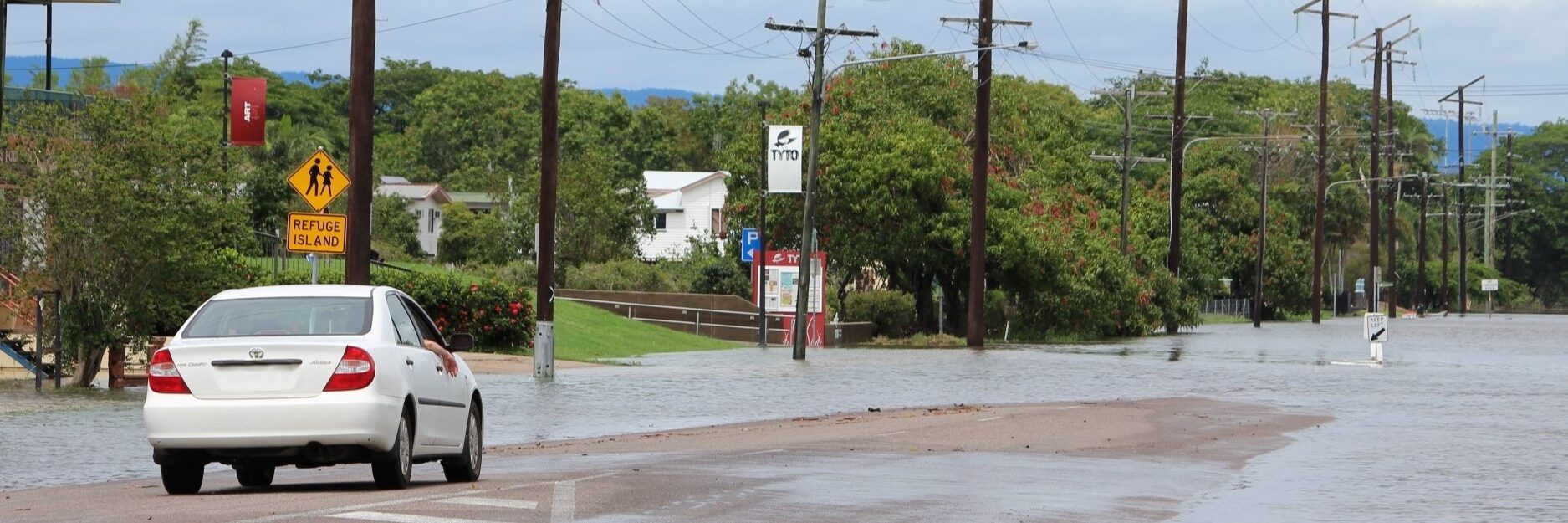This car is about to turn around from a flooded street in Ingham, Far North Qld. Photo: ANDREW KACIMAIWAI
Relentless global warming is fuelling worsening water disasters, says a consortium of public and private water organisations.
The Global Water Monitor recently released its 2024 summary report which contained the warning.
ANU water science professor Albert van Dijk is chairman of the Global Water Monitor consortium. In the report’s preamble, he wrote that global water systems are under mounting pressure as climate change drives more extreme weather events.
“This report reinforces a clear message: as the planet warms, water challenges are escalating, year after year,” Prof Dijk wrote.
“2024 was a year of extremes but not an isolated occurrence. It fits with a worsening trend of more intense floods, prolonged droughts and record-breaking extremes.”
He says climatic changes are affecting water availability and increasingly threatening lives, infrastructure and ecosystems.
“Reliable and timely information about water resources and hazards is more crucial than ever yet traditional ground-based measurement networks continue to decline,” he says.
He says the consortium’s role is to unite public and private organisations to deliver climate and water data by integrating satellite and ground observations.
The 2024 report identifies trends and analyses major hydrological events. It includes updated metrics on rainfall, temperature, air humidity, river flows and water stored in lakes, soil and underground, according to Prof Dijk.
It also provides insights into extreme rainfall and temperatures.
KEY FINDINGS
- Rising temperatures caused by fossil fuel burning are increasing the strength and intensity of monsoons, cyclones and other storm systems;
- Global temperatures are increasing rapidly with the average air temperature over land areas about 1.2°Celsius above the 1995-2005 average. More than half the world’s population in 111 countries experienced their warmest year yet while 34 countries set new maximum temperature records;
- High rainfall and drought are becoming more extreme;
- Water-related disasters like storms, floods and landslides caused major damage in 2024, responsible for more than 8700 deaths, displacing 40 million people and inflicting more than US$550 billion in damages;
- Floods and drought affected different parts of Africa as severe drought gripped the Amazon Basin;
- The outlook for 2025 reveals greater risks as seasonal climate forecasts and current catchment conditions signal potential worsening of droughts in northern South America, southern Africa, and parts of Asia. Wetter regions like the Sahel and Europe may face greater flood risks.





